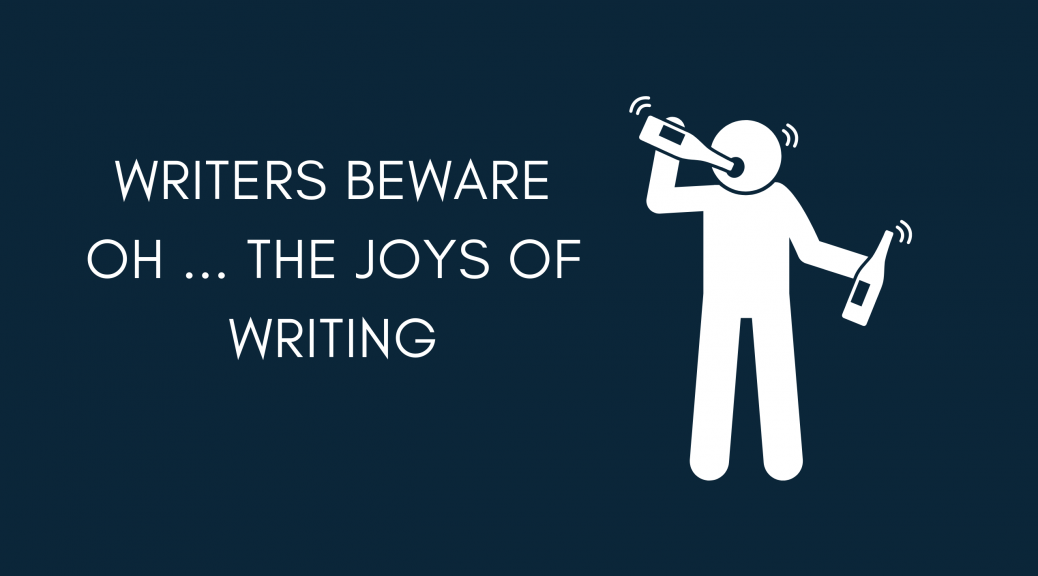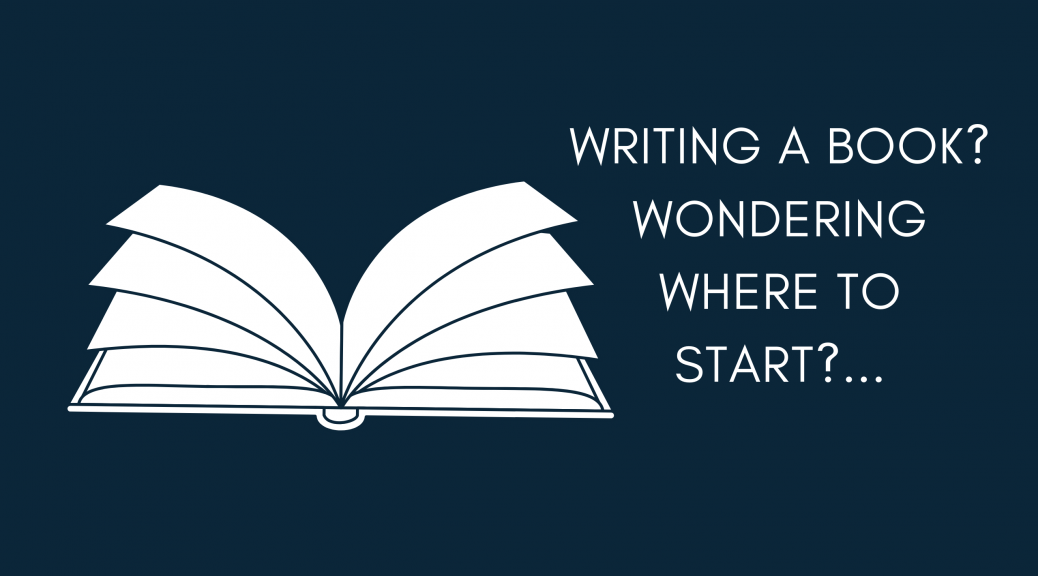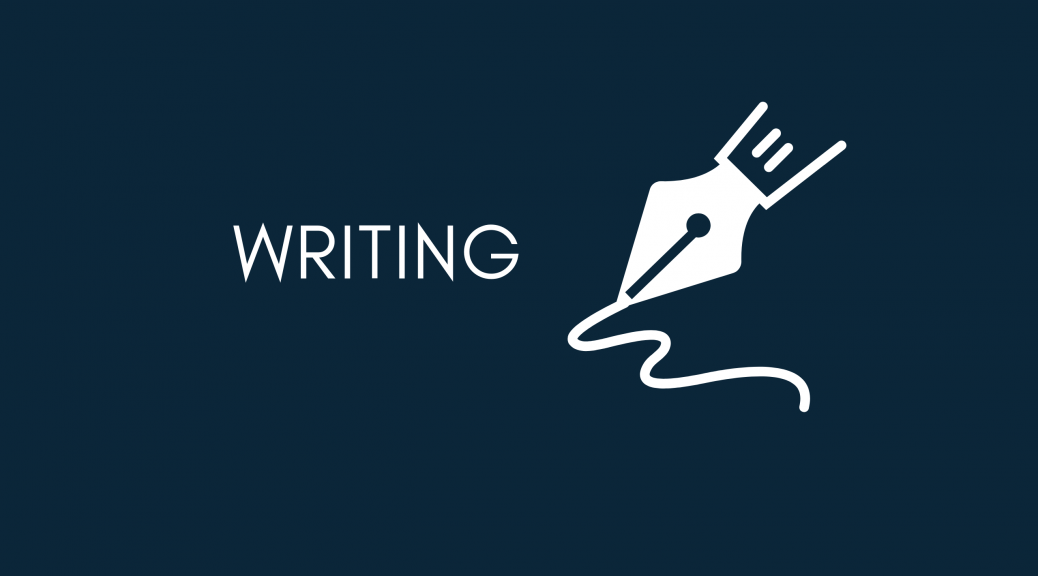
The joys of writing
If you’ve ever heard the expression, the road to hell is paved with good intentions, then you may also have heard the road to publishing is littered with rejections. Oh and mind you step over the would-be authors lying by the wayside pounding their fists while crying “Why? Why? Why?”
It’s been a bit of an emotional rollercoaster few weeks here at the desk. Let me walk you through it. My April started out great. I’ve studied my socks off getting to grips with what goes on in the publishing world. After studying “Inside Book Publishing”, an industry certificate with the Publishing Training Centre in London, I was delighted to receive a pass with Merit. Yay for me, I thought. Now I can take on the world. It didn’t take long for that happy bubble to burst. A few days later I received an email notification that I had not been shortlisted for the Lucy Cavendish Prize. Boo, sigh, doom, gloom, coffee, recriminations, resignation.
Then a few days later – OMG, could it be true? Hysterical shrieking ensues. Email just in, “thank you for sending us your sample chapters and pitch – we invite you to send us your full manuscript…blah blah…” Now for us writers, praying, begging day in and day out, hoping to catch the eye of an agent or publisher, this is the dream email. This is your six numbers on the lottery ticket – well 5 technically because they still haven’t committed to printing it – but still – breakthrough – they want to read it.
If I could post emoticons here it would read like one of those stick person flicker books. My husband is the sensible one and he began researching this ‘publisher’ just to check everything was as it should be. I messaged a fellow writer friend – more high pitched screams. You get the idea.
And then it started to fall apart. It soon became apparent that I had fallen hook, line and sinker for a (queue dramatic music) VANITY PUBLISHER! Except they were very clever. On their website they say they offer two publishing routes. (a) Traditional publishing and (b) shared costs. The alarm bells should have started ringing at that point, but I naively thought, oh well let’s see if they offer me a traditional option. Neither my husband nor I could find anyone on the internet who had a single good thing to say about these guys. The one writer who did actually get a contract out of them, ended up taking them to court. After extensive reading, it appears they are operating what is known in the industry as a ‘bait and switch’. So they lull in your eager to be published writer, they tell you they are interested in your work, you get all excited, you start dreaming of your name in Waterstones, you see yourself laughing and clinking glasses at your book launch, and then BAM, they hit you with the ‘cost’. The what sorry?
At this point I just want to paint the scene. Two hours previously I’d been screaming “Yays” and “Oh My Gods”, fast forward to tears. Real tears. And made up swear words. My husband did his best. He patted me from a safe distance and said, “You’ll get there… You know this is what it’s like being a writer…. This is your dream remember.” I think it was at this point I burst out laughing – yes while still crying. It was hysterically funny and not at all attractive. Yes this was my dream – and look at the state I was in. A blubbering mess of humiliation and self loathing. Part of me was annoyed at myself for missing the signs, and part of me felt humiliated that I dared to believe maybe my book was great after all and I just had to believe in myself.
I did, fleetingly, feel rather angry about the whole thing. It’s fine if you want to pay to have your book published. I get that. I just don’t want to go that route. But for a publisher to reel in wide-eyed hopefuls with the promise of a contract, and then to ask them for money, is downright cruel. ‘They’ would argue that they offer a service and their clients are happy (yes but for a fee). However, for the writers who have spent days honing their pitch and possibly years writing their book, they don’t want to be lured in with a sweet deal that turns sour!
So repeat after me. The one Golden Rule you should remember if you are interesting in being a published author (and I learned this from my recent course work). “In publishing, the money should flow TOWARD the author not away.”
I’m sharing all this because, believe it or not, a few good things came out of that rollercoaster few weeks. (a) The Inside Book Publishing course taught me not to be so snobbish about ebooks. It’s something I might consider, so the course has enlightened my thinking and broadened my horizons. Plus another qualification! Yay’s all round.
((b)The competition I entered – acht well – disappointing – but perhaps it just wasn’t the right competition, or the right time, or the right novel. Whatever the reason, the important thing was to get involved and put myself out there.
And finally (c), the dashed dream of a publishing contract. Well actually, the request for my full manuscript sent me into a bit of a frenzied “oh shit, it’s not quite as ready as I thought it was. I just need to spend a few more days on it.” So that tells me more work is required, so let’s get to it. That really is a positive as it means I will be ready when the real invitation comes my way.
I also learned something about myself. I really want this so much. But – not at any price. I think I’m idealistic like most writers. I want to write something I am proud of and something a publisher would be proud of, or something an agent wants to represent. I don’t want to pay and take the easy road. I want to take the hard road, to learn my craft and experience all the heartbroken tears, the rejection letters, the disappointments and the near misses. I really believe it will make me a better writer in the end. I experienced a glimmer of the joy I WILL feel when the right agent or publisher comes along. Just imagine how sweet it will taste when I succeed. That’s worth all of this!
Yes, I really am quite mad!





